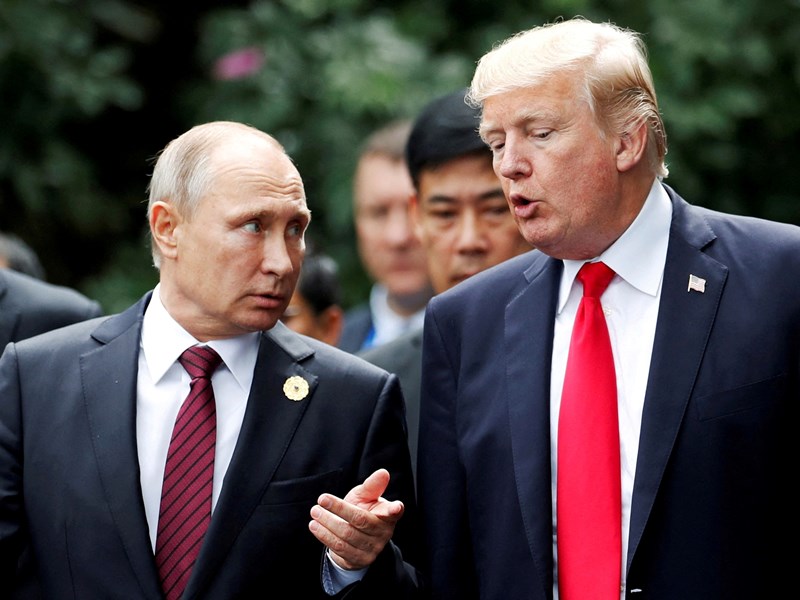U.S. President Donald Trump and Russian President Vladimir Putin held crucial talks in Alaska on Friday, with hopes of brokering a ceasefire in Ukraine hanging in the balance. The meeting, held at a Cold War-era air force base, marked their first face-to-face discussion since Trump’s return to the White House. While Trump had previously vowed to end the war in Ukraine within 24 hours, he admitted the conflict had proven more challenging than expected. The talks come amid concerns from Kyiv and European allies that Trump might push Ukraine into unfavorable concessions.
Trump is pushing for a truce to bolster his image as a global peacemaker—a role he has openly linked to his desire for a Nobel Peace Prize. Ahead of the summit, he suggested that a potential three-way meeting with Ukrainian President Volodymyr Zelenskiy could be more significant than his talks with Putin. Zelenskiy, excluded from Friday’s meeting, expressed cautious optimism after a recent call with Trump, in which the U.S. president reportedly agreed that Ukraine must be involved in any peace negotiations. European leaders also welcomed Trump’s apparent commitment to avoiding unilateral deals with Moscow.
Facing economic strain from Western sanctions, Putin is seeking relief from Trump, who has previously threatened even harsher measures against Russia. In a strategic move, the Kremlin leader dangled the prospect of a new nuclear arms control agreement—a key priority for Trump—to replace the expiring New START treaty. While Trump expressed confidence that Putin would agree to a deal on Ukraine, analysts warn that any ceasefire could be a tactical pause rather than a lasting peace. Putin has set strict conditions for a full truce, but a limited agreement on air warfare may be possible.
A Kremlin insider suggested that some preliminary agreements had been reached, acknowledging that Russia cannot afford to reject Trump’s demands outright. However, experts caution that Putin may use any deal to manipulate escalations in Ukraine later. Sam Greene of the Center for European Policy Analysis noted that a ceasefire allowing Russia to retain military leverage would be an ideal outcome for Putin. As the world watches, the Alaska summit could either mark a turning point in the war or merely serve as a temporary diplomatic spectacle.














